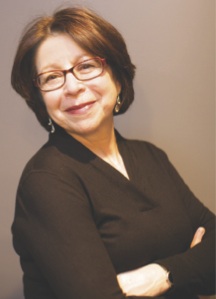
Our Seemingly Micro Tzedakah Decisions Can Power Larger Waves
Reprinted from the Fall 2014 issue’s Letter from the Editor
 Maybe you’re like me and you’ve tended to see economic justice in terms of fair labor practices, access to good health care, fresh produce in urban food deserts, affordable housing. Big goals with big consequences. Beyond carrying bills in a pocket to give tzedakah graciously or nervously on the street, what small (or larger) potential acts of the pocketbook have escaped our notice?
Maybe you’re like me and you’ve tended to see economic justice in terms of fair labor practices, access to good health care, fresh produce in urban food deserts, affordable housing. Big goals with big consequences. Beyond carrying bills in a pocket to give tzedakah graciously or nervously on the street, what small (or larger) potential acts of the pocketbook have escaped our notice?
Well, you’ve heard the chatter about doing good while buying more stuff. The manufacturer who promises to give a new pair of shoes to a poor child for every pair of its brand you purchase. The company that pledges to donate to breast cancer research an undisclosed portion of its profits from the pink item you’ve just acquired.
Like the rest of us, I figure that I make choices every day—every waking hour, practically—that reflect my values. A lot of these choices are made reflexively, because I’ve practiced them so many times that they’re inadvertent habits. The food I eat—or avoid. Whether I run the water while brushing my teeth or turn off the tap. Which charity solicitations I open and consider vs. which ones I put immediately into the recycling bin. You too?
But there’s another order of choices that feel new to me, a fresh kind of economic consciousness I’ve been thinking about thanks to two women whose actions are worth emulating—and expanding on. These two rabbis have recently been modeling, through their own actions, a different tzedakah. They’re good at remembering that tzedakah comes not out of the idea of charity—giving alms to the poor—but from the root tzedek, righteousness.



